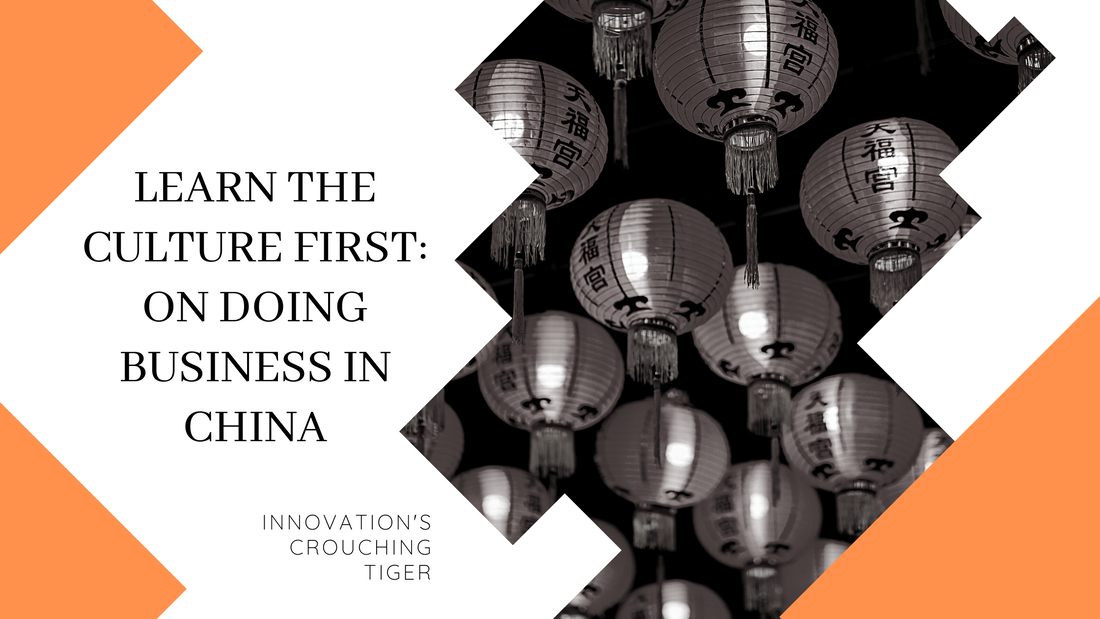Innovation and
|
|
Governments and businesses all over the world operate on an unspoken foundation of various unique and distinct cultural characteristics. Different parts of the world will naturally have different cultural values, such as that of individualism or collectivism. We’re going to dive into the different cultural values that affect the government and enterprises in China, providing different examples about what works and what doesn’t when doing business with China.
The Effect of Traditional Culture on the Chinese Government
First, the fundamental mentality of the Chinese government is pragmatism. This never changes. When compared to leadership today, the spirit of experimentation and pragmatism endures. We can see this in Deng Xiao-ping’s (former president of China) famous quote, “groping for stones to cross a river”. Second, the idea of sharing is quite consistent and harmonious with the ideals of socialism. For example, the IP system is imported from the West to strike a delicate balance between market competition and encouragement of innovation. But in China, an unexpected fortune concentrated in the hands of a few individuals may be seen as an unjust windfall. IP Securitization at least provides a chance for a larger group of people to “opt-in” and share in the potential wealth, tempered by their respective risk tolerance. The robust growth of such deals in recent years suggests its cohesion with China’s cultural foundation. Business Models in China In Innovation’s Crouching Tiger, Dr. Jili Chung recommends certain business models and recommends against others, this is naturally influenced by the cultural values that are infused into the Chinese business world. One of the business models not recommended as a potential business approach is the “Patent Licensing and Enforcement” model. This is an interesting case scenario where an established business model in the West has limited potential in China due to cultural differences. In the US, a Non-Practicing Entity (NPE) (i.e., an entity which owns but does not develop its patents) is a well-established model to monetize IPs. A similar model is just now emerging in China. One would think this is a good business model for development because of its establishment in the West and lack of development in China. However, in the next ten years, such a business model has limited potential in China for two reasons. First, Chinese culture tends to favor harmony over confrontation. The business community does not completely embrace the idea of the western adversary judicial system and this business model relies on litigation and effective enforcement. Second, Chinese courts are acting in line with a global trend that becomes less friendly to NPEs, as exemplified in the America Invents Act (AIA) enacted in the US in 2011. For these reasons, this model is not recommended for businesspersons in China or those pursuing business with China. *** Knowing Chinese culture and how it influences government policies, people’s behavior, and business pathways will help any businessperson more smoothly enter the Chinese market. One simply needs to learn these cultural characteristics to build their mental framework when working with China. Understanding the importance of harmony can inform one on why Jack Ma’s ANT Group IPO was shot down by the Chinese government. Jack Ma strikes broadly with his cutting-edge fintech while challenging tacit rules considered to uphold harmony in society. This scenario invites governments’ scrutiny on pros and cons regarding innovation and efficiency in monopoly. The emphasis on fairness and equality leftover from Chinese socialism also helps to explain the emergence of the STAR market, a subsector of the Shanghai Stock Exchange. The whole purpose of the STAR market is to give small and medium-sized tech companies a chance at monetization. After all, large companies are not the only entities with valuable technological output. Connect with us and read more about intellectual property and technology in China by visiting our blog at ictiger2020.com – e.g., The Three Most Promising Business Models in China or Ant IPO on Hold But a Great Showcase for IP Monetization in China. Or find us on our Facebook @ICTiger2020 for regular news updates on related topics. Sources: Our very own, Innovation’s Crouching Tiger.
0 Comments
Leave a Reply. |
Categories
All
|

 RSS Feed
RSS Feed
